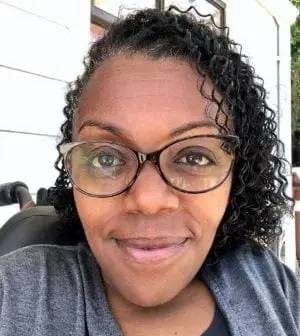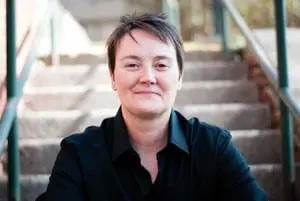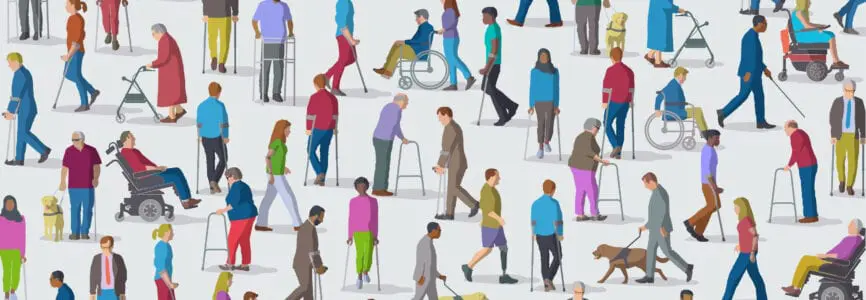Navigating: On Disability, Technology, and Experiencing the World
Part 2 of our online event series, “The Art of Flourishing: Conversations on Disability”
How are people with disabilities (disabled people) using—or choosing not to use—technologies to promote individual flourishing? Which technologies, and under what circumstances, truly enhance a person’s ability to live the most meaningful life? Watch the discussion:
TRANSCRIPT
This event was the second in a series produced by The Hastings Center and supported by the National Endowment for the Humanities. Learn more about the series.
Featuring:

Yomi S. Wrong. Wrong is a health care professional, freelance journalist, and disability justice activist whose talk will explore the relationship between assistive devices, agency, and desirability. She will identify a moment in childhood where she learned a hard truth about access to mobility equipment being central to identity development. And she will ask, what happens when assistive technology is stripped away or foisted on us? The ways disabled folks navigate and the experiences we have in the world qualitatively shift based on the tools at our disposal. The right devices can liberate us, provide a sense of identity and esteem, and offer clarity about who we are.
Rod Michalko. Compared to most, navigating the world is different for Michalko. He is blind. Smokie, his guide dog, guided him for years; now he uses a white cane. Both ways bring the world to Rod and each takes blindness into the world differently. As a sociologist, he has written many books and articles about his experiences navigating–his favorite, The Two in One: Walking with Smokie, Walking with Blindness. He will speak of these experiences.

Kim Q. Hall. For Hall, queerness and childhood surgery shape a limping-swaggering mode of navigating the world that is situated between disability and ability. Hall considers the relation between heteronormativity, ableism, and technologies aimed at curing/eliminating disability. Hall is Professor of Philosophy and a faculty affiliate of the Gender, Women’s, and Sexuality Studies program at Appalachian State University.
Erik Parens, senior research scholar at The Hastings Center, director of the Center’s Initiative in Bioethics and the Humanities, and author of Shaping Our Selves: Technology, Flourishing, and a Habit of Thinking, will introduce the event.
Rosemarie Garland-Thomson, professor of English and bioethics at Emory University, senior advisor at The Hastings Center, and co-editor of About Us: Essays from the Disabilities Series of the New York Times (Liveright), a recent book based on The New York Times’s pioneering series, will moderate a brief conversation among the panelists after their presentations.
Joel Michael Reynolds, assistant professor of philosophy and disability studies at Georgetown University and a senior research scholar in the Kennedy Institute of Ethics. He is the author of The Life Worth Living: Disability, Pain, and the History of Morality (University of Minnesota Press) and co-editor of The Disability Bioethics Reader (Routledge). He will facilitate conversation between the speakers and attendees.

